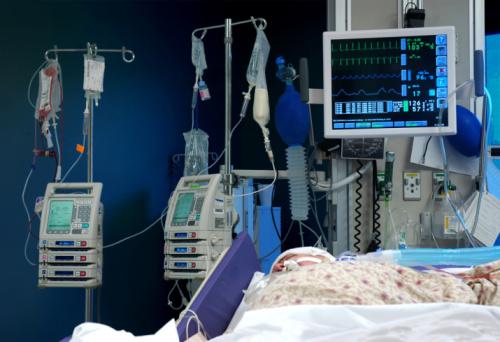A trio of clinical virology experts today called for systematic monitoring of MERS-CoV patients to help answer the many questions about it, especially the problem of how to treat it.
Also today, Saudi Arabia reported another new case, which, along with a case reported yesterday, raised the country's MERS-CoV (Middle East respiratory syndrome coronavirus) count to 708 cases, including 291 deaths.
Clinical research needed
In a commentary in Lancet Infectious Diseases, the three experts noted that many questions about MERS-CoV remain to be answered, including sites of infection, pathogen dynamics, innate and adaptive immune responses, and host genetic factors.
The article was written by Frederick G. Hayden, MD, of the University of Virginia Health System in Charlottesville; Jeremy Farrar, MBBS, DPhil, of the Oxford University Clinical Research Unit in Ho Chi Minh City, Vietnam; and J. S. Malik Peiris, MBBS, DPhil, of the University of Hong Kong's School of Public Health.
They wrote that only a handful of patients so far have had "systematic virological and biomarker sampling," while appropriate antiviral and immunomodulatory treatment remains uncertain because of a lack of good evidence. With no specific treatment, supportive care is the still the mainstay for MERS patients.
For now, the best evidence on treatment supports the use of plasma from recovering patients or other preparations that contain neutralizing antibodies, the three experts said. There are some obstacles to the use of convalescent plasma, they add, but human monoclonal antibodies or immune globulin from genetically modified cows might offer other options.
Could camel antibodies help?
They also raise the possibility of using antibodies from camels, which are known MERS-CoV hosts: "The high seroprevalence of high-titre neutralizing antibody to MERS-CoV or a closely related virus in dromedary camels in the [Middle East] region raises the possibility of using camel sera or engineered single domain camel antibodies for therapy."
Any treatment regimen that is tried should include a careful, protocol-based assessment of safety and effectiveness, the three experts write. They note that in the wake of the 2009 influenza pandemic, a global federation of academic clinical research networks called the International Severe Acute Respiratory and Emerging Infection Consortium (ISARIC) was established.
But so far no MERS patients have been enrolled in treatment protocols that include systematic monitoring through ISARIC or any other organization, they add. "Consequently, we are not learning what might benefit or harm such patients."
They go on to say that clinicians and public health officials in the Middle East, especially Saudi Arabia, are "uniquely positioned" to conduct such studies. With support from partners like ISARIC and the World Health Organization, those groups have "both the opportunity and the responsibility" to do so.
"Thus far, MERS-CoV is yet another emerging infection threat for which the clinical research response has been too slow and uncoordinated," and new investigative frameworks are urgently needed, the experts conclude.
Latest Saudi cases
Saudi Arabia's Ministry of Health (MOH) reported additional single MERS cases yesterday and today.
Today's case involves an 85-year-old Saudi man from Jeddah who is hospitalized, the MOH said. The illness reported yesterday is in a 57-year-old Saudi man from Tabuk who is in a hospital intensive care unit. Both of them have preexisting conditions, and neither is a healthcare worker, the ministry said.
Yesterday the ministry also reported the death of a previously noted case-patient, a 72-year-old Saudi man in Jeddah who was not a healthcare worker.
See also:
Jun 23 Lancet Infectious Diseases commentary
Jun 23 Saudi MOH statement
Jun 22 MOH statement
Saudi coronavirus page with case count























